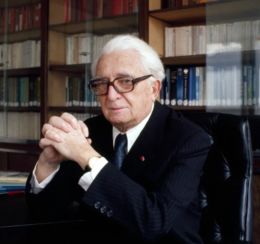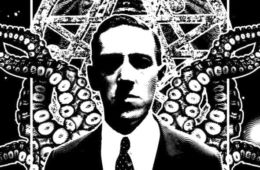Western Civilization Is Destroying Its Historical Heritage, Part VI
5,627 words
Part 6 of 7 (Part 1 here, Part 5 here)
The “Grand Liberal Narrative” of the Twentieth Century
Despite a wide variety of historical schools, a centrist liberal historiography committed to the ideals of rationalism, meritocracy, and the global spread of human rights dominated the writing of history until about the 1980s — while subsequently integrating within its fold the more progressive schools of New Left, feminist, multicultural, and postmodernist historians via a “new liberalism” determined to ensure equal rights for everyone against the continuing racism, sexism, and ignorance of old liberals. But we must avoid judging the historiography of this century in purely ideological terms. Very high-quality history books, based on extensive research, were written during the twentieth century. We would be mistaken to view these books as opinionated tracts. The historiographical achievement of Western peoples during the twentieth century was outstanding, although in its closing years — as well as in our century — the progressivist agenda has engendered many below-average books. Not only did Europeans write excellent histories of art, mathematics, architecture, the sciences, and exploration, but they wrote histories of every nation in the world while developing all the methodologies, such as paleography (the study of historical handwriting), diplomatics (the study of documents, records, and archives), chronology (establishing the dates of past events), epigraphy (the study of ancient inscriptions), genealogy (the study of families), and numismatics (the study of coins), and including ethnography, archeology, and linguistics.
What David Gress insightfully calls “the Grand Narrative” and its ideology of centrist liberalism “permeated education, public opinion, and political doctrines in much of Western Europe and the US from the 1940s to the 1980s.” There were variations of this Narrative, with the “WASP West” and the “Allied scheme of history” gaining the upper hand in the United States, with “the Atlantic community” seen as “the pinnacle of human progress,” the result of thousands of years of social evolution from ancient Greece and Rome through “Judeo-Christianity,” Newtonian science, the Enlightenment, and the Industrial Revolution. Daniel Bell saw the 1960s as the coming of “the end of ideology,” with only piecemeal technocratic adjustments remaining to be disputed by a relatively affluent population.
Of course, no sooner did Bell say this than the activists of the 1960s came onto the scene. The Vietnam War, the black civil rights movement, Third World poverty and revolutions, and the threat of nuclear war appeared to have brought to an end the family-oriented, and still puritanical, centrist liberalism that had prevailed from the 1940s through the 1960s. But what these events and movements demonstrated is that a lot more improvements in human affairs remained to be done. This was the task of the next progressive generation. This essay has been examining the phenomenon in two ways: pointing to the progressive side of past ideas and how they laid the groundwork for new progressive ideas in the next generation, while at the same time showing how new generations sought to rethink the course of history in light of new developments in knowledge and historical methodologies. Consider George Bancroft (1800-1891), the most influential American historian of the nineteenth century. By the standards of later generations, and certainly today, this man would be considered a fascist for his acceptance of the basic moral norms of his day about marriage and Christianity, and for his identification of the greatness of America with its “Anglo-Saxon” character. Yet, contained in his ten-volume History of the United States are ideals with a strong connection to contemporary neoconservative (and current Leftist) policies about spreading democratic rights to the world. Bancroft believed that America was created “for the advancement of the principles of everlasting peace and universal brotherhood.” With the spread of American values, the “ages of servitude” and “inequality” would end. The prime longing of all humans is liberty. While this love of liberty was Anglo-Saxon in origin, it had become in America the “breath of life to the people.” Americans “heard the glad tidings [of liberty] which promised the political regeneration of the world.” The Declaration of Independence was the “announcement of the birth of a people” dedicated to the spread of liberty to the world. Slavery, Bancroft insisted, was an institution that had originated outside the American ideal of liberty, and that’s why it was eventually abolished.
The “new progressive historians” of the early twentieth century who “rejected” Bancroft’s liberal conception for a “social” or “economic” historical approach, and driven by a longing for a more democratic society, focused on the role of the masses, workers, new immigrants, and women. They were merely addressing the persistent impediments to the actualization of the ideal of liberty by advocating reforms to lift up the masses that had not benefitted from the limited liberties of the past due to lack of public education and exploitative working conditions. Bancroft was himself an advocate of public schools. Charles Beard portrayed Americans in The Rise of American Civilization (1927) as a “democratic” people struggling for greater equality and inclusion of immigrants against the propertied interests of big business defended by Bancroft’s classical liberalism. The Puritans that the historian Bancroft celebrated for creating a WASP-oriented America were increasingly seen by this new generation of “progressive historians” as adherents of an outdated America out of touch with the new realities of an America made racially diverse through immigration.
The progressives after Beard — the New Left historians — would go on to push for historical narratives that didn’t prioritize a white male America, such as in Eugene Genovese’s Roll, Jordan, Roll: The World the Slaves Made (1974), which won none other than the Bancroft Prize for its new research into how the antebellum South had been a paternalist society that exploited and sought to dehumanize its slaves, with other historians insisting that culture and ideology were as important in determining the course of history as economic change, and a new generation of students wanting to overturn the “paternalistic” and “stifling” world of their parents in the name of individual “authenticity.”
This dialectic within progressivism is quite apparent in the twentieth century’s historiography. Will Durant’s colossal 12-volume, 9,000-page The Story of Civilization (1935-1975) — a popular work many bought yet none read, and which specialized academics envied — was seen in its day as an urbane, post-war liberal effort to spread knowledge widely among an educated lay population. Having read segments from some of these volumes, Gress’ judgment strikes me as correct: Durant’s work is an “immensely learned, vividly written” treatise in which history is seen as “tending to more freedom, greater equality, and broader rights.” Durant experienced this progressivism in his own life, growing up as a New Deal liberal and becoming a Kennedy liberal in later years who was uncomfortable with the ethnocentrism of his bestseller, The Story of Philosophy (1952), which left out the Asian philosophers, as he says in the Preface to its second edition of 1965. The Story of Civilization, even though it started with a first volume dedicated to the “Oriental World,” nevertheless remained a story of Western civilization through the next 11 volumes.
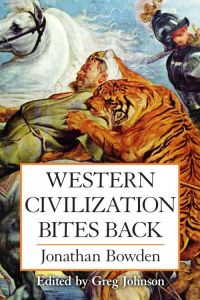
You can buy Jonathan Bowden’s Western Civilization Bites Back here.
Durant belonged indeed to a generation still comfortable with social Darwinism. In a short book written with his wife, The Lessons of History (1968), they wondered whether “Oriental fertility, working with the latest Occidental technology, would bring the decline of the West,” and noted that “the first biological lesson of history is that life is competition” and that humans “are subject to the . . . struggle for existence and the survival of the fittest to survive.” Social Darwinism had not been fully rooted out from liberalism.
It may seem a stretch to argue that a liberal triumphalist “Grand Narrative” dominated the historical vision, considering the many specialized historians who were ill at ease with making sweeping generalizations about the course of history, and were rather pessimistic about the future after the disastrous experience of two world wars and the possibility of nuclear annihilation. As a history student I was warned against the assumption that there was a telos, purpose, or direction in history leading towards a better future in a cumulative way. Herbert Butterfield’s attack in 1931 on the “Whig Interpretation of History” — the idea that the past contained the seeds of the future — was widely accepted as a valid critique.
Arthur Herman, in The Idea of Decline in Western History (1997), argued that a coherent ideology of cultural pessimism could be seen emerging in the late nineteenth century in the writings of Nietzsche, Spengler, DuBois, Freud, Germany’s National Socialists, and up through the Sixties counterculture, the existentialist philosopher Sartre, the world historian Arnold Toynbee, and America’s multiculturalists and Afrocentric historians. For Nisbet, as we saw earlier, the idea of progress persisted until about the 1960s. It is Gress’ view as well that, while the Grand Narrative dominated American elite culture from the 1920s to the 1960s, this Narrative “began its fall” in the 1970s, to be successfully deconstructed “by the 1990s” via a successful rebellion of New Left, multicultural, and postmodernist historians.
I believe a strong case can be made that what was really rejected was a Western-centric idea of progress that was insufficiently progressive. In its classical liberal version, this idea was “biased” in viewing the WASP world of the United States as the culmination of history, to the exclusion of the progressive contributions of other civilizations and races. This Narrative was an “unfinished project” requiring revision, starting with an acknowledgment of the way the West had “underdeveloped” the rest of the world in its climb towards supremacy, as well as in the way slaves, indigenous peoples, and working classes had endured oppression in the march of progress. An “honest conversation” about the racial injustices still prevailing in the West was required if the Western world was to live up to its ideals of democracy, individual rights, and equality. It was necessary to propose a new, revised, liberal multicultural idea of progress pointing towards a new universalism of human rights and a world history without a triumphalist West.
There was no “march through the institutions” by another ideology called “cultural Marxism.” After the crimes of Stalinism, the failures of Communism, and the successes of Keynesian capitalism, Western Marxists gradually abandoned the idea of “expropriating the capitalists” to focus on socialistic reforms and changes in cultural attitudes, becoming the “New Left,” with its members successfully being integrated into academia and other institutions by centrist liberals who agreed with “more progress and more equality.” Jürgen Habermas, a second-generation member of the Frankfurt School, disagreed with Max Horkheimer and Theodor Adorno’s argument about the decay of Western rationalism into a self-destructive “instrumental reason” by locating within the Enlightenment a second rational discourse, a “communicative intersubjective rationality” that escaped the narrow means-and-ends logic of instrumental reason. This had come into fruition in the eighteenth century within the “bourgeois reading public” in places such as salons and coffee-houses, a “public sphere” which set limits to the illegitimate use of power and nurtured a rational-critical culture where citizens were bound only by the force of the better argument. Habermas’ own biases, or lack of universalism in tracing the history of this emancipatory discourse in “Judeo-Christianity” and in the European Enlightenment — yet without including the contributions of non-Western peoples (notwithstanding his efforts to see emancipatory impulses in other religions) — could be easily remedied, as it has been, with a “global history.” A global history has indeed emerged across the Western world, displacing the teaching of those Western civ courses that had prevailed up until recently, which “moves beyond the obsession with the Enlightenment’s European origins” and shows that “ultimately” it was a “process of global circulation, translation, and transnational co-production that turned the Enlightenment into the general and universal that it had always purported to be.”
The natural progression of the idea of progress, from its centrist position in the first half of the twentieth century towards New Left liberalism, can be ascertained through a study of the intellectual odyssey of William McNeill from his book The Rise of the West, which is subtitled A History of the Human Community and appeared in 1963, to The Human Web, which was co-authored with his Leftist son 40 years later. The Rise of the West, winner of the National Book Award for history, is a delightful read of more than 800 pages about how the West gained world supremacy, challenging the Spengler-Toynbee view that the civilizations of the world evolved along separate paths by emphasizing the interrelations of cultures throughout time — but without losing sight of the impressive “rise” of Europeans, their “deep-rooted pugnacity,” as well as their “lively curiosity, insatiable greed, and a reckless spirit of adventure that contrasted sharply with the smug conservatism of Chinese, Moslem, and Hindu cultural leaders.” The Rise of the West was itself a grand synthesis of the enormous knowledge Europeans had gained through the first half of twentieth century about the whole history of mankind, as can be seen in the sources, which are overwhelmingly by Western historians along with a few non-Westerners educated in the West. You can also check, if I may add, the bibliography of the first volume of Will Durant’s The Story of Civilization, which is titled Our Oriental Heritage and was published in 1934: Almost all the 400 or so books listed in its bibliography about the worlds of Sumeria, Egypt, Babylonia, Judea, Persia, India, China, and Japan, were authored by Europeans.
McNeill’s centrist liberalism in 1963 was already imbued with the latest “progressive” ideas of the day, including an awareness that he should avoid what he would later call in the 1980s “the hampering ethnocentrism” of “contemporary American and European society,” which explains why he emphasized how the West rose in connection to other civilizations. In his 1974 book The Shape of European History, he noted that “few living historians accept” the “no longer very convincing idea” that “Europe’s history is the history of liberty.” We saw earlier that this idea goes back to the Scottish Enlightenment. It is famously identified today with Lord Acton (1834-1902), given that he spent much of his professional life working on a comprehensive history of liberty which remained unfinished. Acton insisted that we cannot understand the history of Europe if we fail to appreciate how its development of liberty “set it apart from other cultures” — the idea that “every man shall be protected in doing what he believes is his duty, against the influence of authority and majorities, custom and opinion.”
History as the story of liberty, a key pillar of classical liberalism that is still advocated by centrist liberals — now known as “libertarians,” despite the fact that they have come to terms with the expansion of government public goods — was not even the central idea in McNeill’s The Rise of the West, which gave prominence to European industrial and state military power after 1500. In a lecture at the American Historical Association in 1976, he called for a new required course focused on world history rather than Western civ. The teaching of Western civ courses had been mandatory across American campuses from about the 1920s. For McNeill, these courses were failing to teach students about the great cultures and complex affairs of a world far greater than Europe. In the 1980s he voiced approval of New Left historians, and claimed that the very notion of “the rise of the west” was an expression of Western triumphalism. In “The Changing Shape of World History,” published in 1995, he proudly explained how he had gradually come to accept a slightly revised version of Immanuel Wallerstein’s world-system analysis that the European world rose on the backs of Africans, Amerindians, and Asians, combined with a new environmental perspective he had articulated in Plagues and Peoples (1976) that placed microparasites rather than European ideas at the center of world history. By the early 2000s, as Western civ courses were being rapidly replaced by World History surveys, he concluded (in The Human Web) that history is essentially a product of the interactive webs of plants, animals, parasites, and “common everyday” humans across the world.
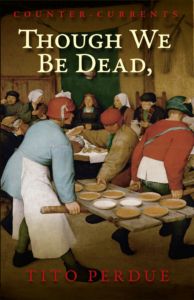
You can buy Tito Perdue’s Though We Be Dead Yet Our Day Will Come here.
Because McNeill’s odyssey was ostensibly driven by a rejection of the West as the harbinger of liberty and progress, one can easily fail to see the progressivism behind it. McNeill was simply progressing into the idea of New Left historians that one must completely abandon a “jingoistic” pride in the European and American past in the name of “facilitating a tolerable future,” as he put it, “for humanity.” Like many progressives there was an element of pessimism in McNeill, a rejection of a “triumphalist” West in the face of environmental degradation, the threat of nuclear war, and Third World poverty — but one inciting a stronger progressive politics to improve the world.
A doubly confounding dilemma of liberal progressivism in the twentieth century is that, firstly, it has sometimes entailed a new generation attacking the “conservative” liberalism of prior generations, thereby giving the illusion that “new historians” with “radical” ideologies (Cultural Marxists, postmodernists, feminists) have taken over, instead of their simply being the latest versions of a continuously progressing liberalism. Secondly, it has occasioned an underestimation of the incredible historiographical creativity (and progression) of the West in the twentieth century. Generally speaking, the West sees the following historical schools in the post-world war decades:
- the continuation of the Grand Liberal Narrative;
- the rise of a highly influential Marxist/New Left historiography;
- the French Annales School founded by Lucien Febvre and Marc Bloch,
- the “New Cultural History” and “Postmodernist” approaches principally associated with Michel Foucault;
- the Quantitative or “Cliometrics” school, sometimes called “New Economic History”;
- the Historical Sociology of Barrington Moore, Theda Skocpol, Randall Collins, and Michael Mann;
- the History of Everyday Life and Microhistory;
- the Cambridge School, with its historicist or contextualist interpretation, which places primary emphasis on the intellectual context of the discourse of a given historical era and is associated with Quentin Skinner and J. G. A. Pocock;
- the Cambridge Group for the History of Population founded by Peter Laslett and Tony Wrigley; and
- World History Connected, or “World History for Us All,” which is currently a mandatory approach to the teaching of history to children across the United States, among other countries, which includes as well the increasingly influential evolutionary/cultural psychological approach to historical explanation by figures such as Joseph Henrich and Steven Pinker.
All the historians belonging to these schools, in varying degrees and modes of expression, are progressive liberals — either in their own time, or today. This is true of evolutionary psychologists such as Pinker, who believes that cosmopolitanism, diversity, and the application of Enlightenment reason have allowed the “better angels in our nature” to shine through. The one school that was not progressively liberal was German Historicism, which was rejected for its attempt to defend the unique “authoritarian” path of German modernization at the same time that its “historicism” was thoroughly domesticated. The “contextualist” or historicist thought of Quentin Skinner is seen by Leftists as “centrist liberal”; he is known for his “revival of interest in Roman republicanism,” a tradition in political theory that emphasizes individual freedom “understood as non-domination or independence from arbitrary power.” These “republicans,” however, can’t decide whether migration controls by a given state would constitute an “arbitrary” or “non-arbitrary” form or state power. None of the members of the historical schools identified above has spoken against replacement immigration or the imposition of “equity, inclusion, and diversity” as the overriding mission at the universities where they happily teach.
This political flaw, however, should not become an excuse to downplay the historiographical achievements of these schools, though not of every book or historian within them, and obviously without losing sight of the liberalism within which these schools were fashioned and how this liberalism has influenced the choice of subjects and the way in which history is interpreted. History has been a very scholarly discipline even to this day. In good university departments — notwithstanding the increasing downgrading as a result of affirmative action hiring, “diversity” subjects, and excessive overspecialization — students are expected to show the utmost respect for sources, write excellent narratives, or — if one is taking a social science approach – to use rigorous methodologies.
I have read many books from all the schools listed above. The Western historiographical tradition is far superior to the non-Western tradition that multicultural historians are outrageously judging as equal in quality. Take the Annales School: It aimed at a “total history,” merging various disciplines, geography, social history, psychology, demography — and in the work of Fernand Braudel it saw the differentiation of three historical times, each with its own speed: the longue durée, or the slow time of land, sea, recurring seasons, topography, and collective mental structures that prevail among peoples for centuries, and which change so slowly they appear as immobile and have shaped the history of most humans. This is followed by the conjunctural time of economic cycles, which last for decades, and trends in prices; and the fast time of political events, wars, diplomacy, and personalities. If one looks at the everyday life of humans, the things that matter to most — lifespan, standard of living, infant mortality, land productivity — it barely changed for centuries. The ideas of intellectuals appear, in the words of Braudel, as mere “surface disturbances, crests of foam that the tides of history carry on their strong backs.” Braudel, author of The Mediterranean and the Mediterranean World in the Age of Philip II (1949), and who is seen by some as the greatest historian of the twentieth century, can be criticized, of course, for underestimating the accumulating power of European ideas leading to scientific and industrial revolutions. It is worth noting, however, that the Fernand Braudel Center and the official journal associated with it were both founded by the Marxist Immanuel Wallerstein, and that the books published under its banner are thoroughly multicultural and anti-Western.
What about the Marxists who went on to have lucrative careers in universities? The Marxist school played a major role in the promotion of liberal progressivism in the twentieth century. At first, its members saw themselves as representatives of a Communist ideology that was in direct confrontation with liberalism, and as being followers of “historical materialism” as articulated by Marx, Engels, Lenin, Plekhanov, Trotsky, and Kautsky — all of whom, I might add, wrote historical works. Many of the British Marxist historians who would gain international prestige within Western academia — Maurice Dobb, Rodney Hilton, Christopher Hill, Eric Hobsbawm, and Edward Thompson — were formal members of the Communist Party, though eventually they broke ranks after the Soviet invasion of Hungary in 1956. Their goal as scholars was to show the truthful relevance of Marxism to the study of the past, which they did with great success.
The books of the British names — and, of course, of the founders of Marxism — became required reading across Western academia. Christopher Hill, who acted at Oxford as “Senior Member of the exclusive Stubbs Society” (that is, the Stubbs we met earlier for his “Whig” interpretation of history and which dominated the Victorian Era) was celebrated for his “history from below” perspective in such books as The World Turned Upside Down: Radical Ideas During the English Revolution (1972), and for his biography God’s Englishman: Oliver Cromwell and the English Revolution (1970). E. P. Thompson, on the strength of his widely-read The Making of the English Working Class (1963), which “still endures as a staple on university reading lists,” was named in a 2011 poll by the liberal History Today magazine as the second-most important historian of the previous 60 years, behind only Braudel.
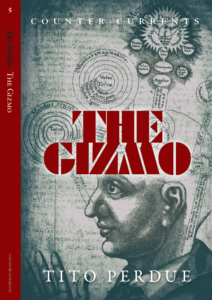
You can buy Tito Perdue’s The Gizmo here.
Hobsbawm, “a lifelong Marxist” who was appointed in 1998 to the very prestigious Order of the Companions of Honour, is best-known for his compound work, the first three of which were required reading in my undergraduate courses: The Age of Revolution: Europe 1789–1848, The Age of Capital: 1848–1875, The Age of Empire: 1875–1914, and The Age of Extremes: The Short Twentieth Century, 1914–1991. He is also known for the influential idea of “invented traditions,” which argues that many European “traditions” which purport to be old are often recent in origin and sometimes “invented.” We could go on naming many renowned Marxist historians. G. E .M de Ste. Croix’s The Class Struggle in the Ancient World: From the Archaic Age to the Arab Conquests (1981), which many liberals praised for “establishing the validity of historical materialist analysis of the ancient world,” is said to have received more scholarly attention than almost any other work of ancient history since George Grote and Theodore Mommsen. The narrative and analyses in these books is first rate. Ste. Croix’s book contains over 120 pages of detailed notes.
This should not surprise us. Marxist historians were operating within the institutional framework of Western universities that had been produced by a progressive world dedicated to the advancement of knowledge and the improvement of society. Centrist liberals were still the majority and did not feel threatened by Marxists. There was an implicit recognition among them that the post-war world was being quite successful in achieving progress, better working conditions, women’s right to vote, “racial justice,” and so on. Liberalism was showing a progressive capacity to stay apace with the “more” progressive” demands of Marxists. Liberals could not disagree with Hobsbawm’s concluding words of hope in The Age of Empire:
The actual achievements of the twentieth century in material and intellectual progress — hardly in moral progress — is extraordinarily impressive and quite undeniable. Is there still room for the greatest of all hope, that of creating a world in which free men and women, emancipated from fear and material need, will live the good life together in a good society? Why not?
The old liberalism concerned with ensuring the negative liberties of citizens against the “coercive” powers of the state had grown out of touch with the needs of a Keynesian state in charge of keeping capitalism afloat by improving the “effective demand” of workers. Liberals were now agreeing that the West had previously been racist, sexist, and exploitative, and that the government could play a positive role in eliminating these problems. American liberals John Rawls, Ronald Dworkin, and Michael Sandel articulated a new liberalism in which equal rights also meant the reduction of inequalities and promotion of the “self-realization” of individuals. Meanwhile, Marxists were moving in directions that challenged the “metanarrative” of class struggle and the overthrow of capitalists — with Michel Foucault replacing Marx as the historical analyst of power — for a “New Cultural History” which argued that the sources of power are not limited to the coercion of a capitalist state but are “everywhere,” diffused and embodied in “discourses of truth” wielded by heterosexuals, patriarchal men, whites, and scientists. Liberal postmodernism had arrived.
The “New Cultural Historians,” which included practitioners of “microstoria” and the “history of everyday life,” are sometimes categorized as “postmodern” even though few accepted the postmodernist tenet that the construction of narratives is fundamentally determined by aesthetic and rhetorical standards. They were practitioners of rigorous archival research to bring out the past. What they rejected, even though some came from a Marxist background, was the claim that one could understand the full complexity of the past merely by writing about the dynamics of macrostructures, modes of production, class conflict, or the “transition” from feudalism to capitalism. They sought to understand the everyday life of common people through the study of small villages or singular individuals. The cultures of the past could not be framed within a grand narrative about “the story of liberty” or the breakthrough ideas of great scientists. The agents of microhistorians were marginalized “little people” who had been left out of the macronarratives. They agreed with the aim of E. P. Thompson’s book, The Making of the English Working Class, which was to “rescue the poor stockinger . . . the ‘obsolete’ hand-loom weaver . . . from the enormous condescension of history,” while placing more emphasis on the symbolic forms, the languages and beliefs, through which particular individuals or small communities at a given time and place experience their world without seeking generalizations about the broad patterns of history.
It is indeed difficult to make generalizations about the New Cultural Historians, or even to identify them as members of any ideological school. They constituted yet another highly original school of Western historiography without parallel elsewhere in the world. Some did adhere to the study of macro symbolic structures, or what the Annales historians called the study of mentalités: the ways in which the minds of people in particular societies were structured by unconscious assumptions, or what Émile Durkheim called the “collective conscience”: the shared beliefs, moral attitudes, and experiences during collective rituals which function as a unifying force within society. Philippe Ariès’s Centuries of Childhood: A Social History of Family Life (1960) reconstructed the mentalities about childhood in the Middle Ages, reaching the controversial conclusion that childhood, as a mindset, was not “discovered” until the seventeenth century. Another very influential macro cultural study was Keith Thomas’ Religion and the Decline of Magic: Studies in Popular Beliefs in Sixteenth and Seventeenth Century England (1971), about how witchcraft, astrology, ghosts, and fairies that were firmly anchored in people’s minds in the pre-industrial world came under attack as Protestants attempted to take the magic out of religion and scientists developed mechanical explanations of the universe.
A true microhistorical study was Carlo Ginzburg’s The Cheese and the Worms (1976), which was about the religious beliefs of an autodidact miller known as Menocchio (1532-1599), who came from the village of Montereale and was accused of heresy during the Inquisition and sentenced to death. Ginzburg’s aim was to understand how seemingly straightforward Christian ideas were reshaped within the particular mental and social world of this self-taught man who refused to stop talking about how he had come to learn, upon reading the Bible, the Decameron of Boccaccio, and a few other books that to blaspheme was not a sin since it caused no harm to anyone but the blasphemer, that Jesus was born of man and Mary was not a virgin, and that Christ had not died to “redeem humanity.” Alain Corbin’s The Village of Cannibals: Rage and Murder in France, 1870 (1993) examines how a young aristocrat, falsely accused of espousing republican views, was tortured for hours by a mob of peasants who then burned him alive, and how the case, recounted in detail in the popular press, brought a national reaction against the mob’s ringleaders, who were then guillotined. Corbin wanted to show the contrast between the traditional sensibilities of the peasants, who saw their actions as natural and politically virtuous and came from a rough world were such actions had been the norm, and the progressively new “bourgeois sensibility” regarding pain and the torture of bodies.

You can buy Christopher Pankhurst’s essay collection Numinous Machines here.
In their works, then, none of these cultural historians agreed with the basic postmodern theory that historical narratives do not refer to a past, but are “verbal fictions, the contents of which are as much invented as found and the forms of which have more in common with their counterparts in literature than they have with those in the sciences,” as the foremost postmodern theorist of history, Hayden White, wrote. While they agreed that one could not construct a science of the direction of history, and that historians tend to write in a literary manner, they believed it possible to bring out “the voices of the past” through archival research.
With the work of Michel Foucault we may be dealing with a postmodern historian who anticipated, and embodied in his sexual life, the current nature of progressive liberalism. His influence on academic scholarship has been pervasive in anthropology, sociology, criminology, cultural studies, literary theory, feminism, and history. His books — The History of Madness (1961), The Birth of the Clinic (1963), The Order of Things (1966), Discipline and Punish (1975), and The History of Sexuality (1976) — are among the most cited ever. He rejected every liberal tenet about the directionality and meaning of history, the concepts of impartial reasoning, the notion that the individual can be a free agent, and the idea that historical research gives us access to an external reality. Every conception of history is a construct constituted by a language that is permeated with hierarchical relations of power. There are no authors in rational control of their narratives, and there is no conscious “intentionality.” The idea of free subjectivity is itself a construction created by power. The claim that gender identity is based on the biology of sex is a form of power that aims to normalize as “correct” certain forms of sexual and gendered behavior while pathologizing other forms. There can be no “liberation” of sexuality, a “natural” form of sexuality that is freed from “capitalistic” or “traditional” oppression, since sexuality is always a result of cultural and power mechanisms. The liberation of one type of sexuality from the oppression of one group merely engenders another form of sexuality controlled by another group. Foucault nevertheless insisted on “critical thinking” against hegemonic institutional norms that have excluded certain ways of thinking and sexuality as demonic, irrational, heretical, or criminal.
A Marxist in his early life, Foucault soon rejected its authoritarianism and homophobia and was influenced by a wide spectrum of thinkers, including Husserl, Heidegger, Nietzsche, the Marquis de Sade, Kafka, Durkheim, Margaret Mead, Beckett, and many others while entertaining himself with drugs and sadomasochistic sexual activities. His work has been summarized as “a long exploration of transgression” against those who control the production of knowledge and define what is human and ethical. He thus explored how medical science was used in the eighteenth century to categorize and stigmatize the mentally ill, as well as the poor, the sick, the homeless, or anyone who deviated from the norms of those in power. He came up with the concept of “disciplinary power” to explain how institutions reconstruct the thoughts, habits, skills, and desires of humans in factories, schools, hospitals, and prisons by using rules, surveillance, exams, and punishment.
This essay was reprinted from The Postil Magazine by permission of the author.
* * *
Counter-Currents has extended special privileges to those who donate $120 or more per year.
- First, donor comments will appear immediately instead of waiting in a moderation queue. (People who abuse this privilege will lose it.)
- Second, donors will have immediate access to all Counter-Currents posts. Non-donors will find that one post a day, five posts a week will be behind a “Paywall” and will be available to the general public after 30 days.
- Third, Paywall members have the ability to edit their comments.
- Fourth, Paywall members can “commission” a yearly article from Counter-Currents. Just send a question that you’d like to have discussed to [email protected]. (Obviously, the topics must be suitable to Counter-Currents and its broader project, as well as the interests and expertise of our writers.)
To get full access to all content behind the paywall, sign up here:
Paywall Gift Subscriptions
 If you are already behind the paywall and want to share the benefits, Counter-Currents also offers paywall gift subscriptions. We need just five things from you:
If you are already behind the paywall and want to share the benefits, Counter-Currents also offers paywall gift subscriptions. We need just five things from you:
- your payment
- the recipient’s name
- the recipient’s email address
- your name
- your email address
To register, just fill out this form and we will walk you through the payment and registration process. There are a number of different payment options.

